Hey friends! Barbarella here with an interview I did with Craig Pryce regarding his latest film, THE MARIJUANA CONSPIRACY, out today in celebration of 4/20. The film highlights the struggles a group of women face and the friendships they form during an experiment on marijuana use. Writer and director Craig Pryce started in film, but transitioned to television and has been doing television series and movies for decades. I wanted to know what brought him back to film, so I started with that question.
![[L-R] Morgan Kohan as Marissa, Brittany Bristow as Jane, Kyla Young as Janice, Julia Sarah Stone as Mary and Tymika Tafari as Mourinda in the drama, THE MARIJUANA CONSPIRACY, a Samuel Goldwyn Films release. Photo courtesy of Samuel Goldwyn Films. [L-R] Morgan Kohan as Marissa, Brittany Bristow as Jane, Kyla Young as Janice, Julia Sarah Stone as Mary and Tymika Tafari as Mourinda in the drama, THE MARIJUANA CONSPIRACY, a Samuel Goldwyn Films release. Photo courtesy of Samuel Goldwyn Films.](https://media.aintitcool.com/media/uploads/article_images_2021/barbarella/themarijuanaconspiracy_still2.jpg)
You’ve been doing TV series and movies since the mid-90's. Why do a feature film now?
“I actually started in indie films. I did a couple of horror films. The first one was called REVENGE OF THE RADIOACTIVE REPORTER. That sold to Universal, which was great for a first effort, and then after that I did THE DARK, which did well for us too. It was picked up by HBO and Miramax and things. Then I sort of segued into TV because it was so far between films. I started doing series and then eventually got into TV movies. I've done a lot of episodic, and then I started to miss long forms. I got into TV movies, then one of my TV films turned into a franchise of seven movies. It became a series, and then I said, "I really miss independent films." It’s been a while since I've had that kind of creative freedom, so I just went for it and decided that this project was fascinating and went out and did it.”
What do you prefer about working in television and what do you prefer about working in film?
“Well, the thing about TV is it's the way it's financed. It's basically financed by networks, so it usually has pretty good budgets, and you know what's going to happen. Sometimes, with TV you come on as a director for hire. and it's nice to go there and just be part of the project and fit in with the crew and cast in episodic, or hopefully lead the way creatively if it's a TV movie. It’s basically a different schedule and a different approach. There's a lot more people involved when you're doing a TV show, but I like that collaborative process and the input and working with people, in that respect. Although, it does have restrictions creatively.
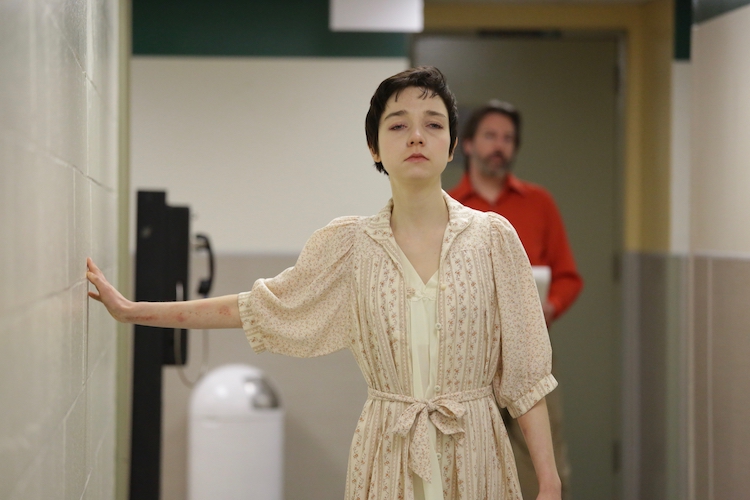
“And the thing I prefer about film is, especially if it's an independent film, you're allowed to bring more of your vision and creativity to it. I deal with subject matter that's not as safe as a lot of TV, unless you're doing some certain cable shows and things. I find with film, it's just more cinematic and visual, and you can take more chances. Whereas with TV, it's more about the character and performances and things, but it's a little safer medium, which is great. I've done well by it. But I do love making films.”
So how did you come across the story of the marijuana conspiracy?
“Well, originally…Diana is an investigative reporter here, and she wrote an article that was in the Toronto Star. I was always developing stuff because I knew I wanted to make a film soon. It's just a really fascinating article about a real event that took place in 1972 about these women who had this really bizarre experiment experience going on. It kept going to the top of the pile. When I looked at what was happening in the early 70's, just the society of ways, the mores, the laws, and also this experiment, it just really fascinated me. And also of course the ladies and all the things that they had to go through. I took it a lot further. Diana became a consultant and an associate producer in the film. She did a lot of further research, and I had the opportunity of meeting a lot of the real women, which is where the project really came to life. But that's how I found out about it and then spent quite a while researching it and writing it while I was sort of working on the television side of it.”
Cool. And you met Doreen Brown?
“Yeah. Doreen was one of the participants. It was interesting because what I did was I didn't use their real names in the film because I didn't want them to be identified, to be fair to them. With that came a lot of honesty from them and truth about what happened, very vivid descriptions of things. But yes, Doreen and some of the other women, they had actually seen the film, which was really interesting, and they liked it. Doreen, in particular, sent a beautiful note about it, so it made me feel good that we did honor their characters and did honor their story and what was going on there.”
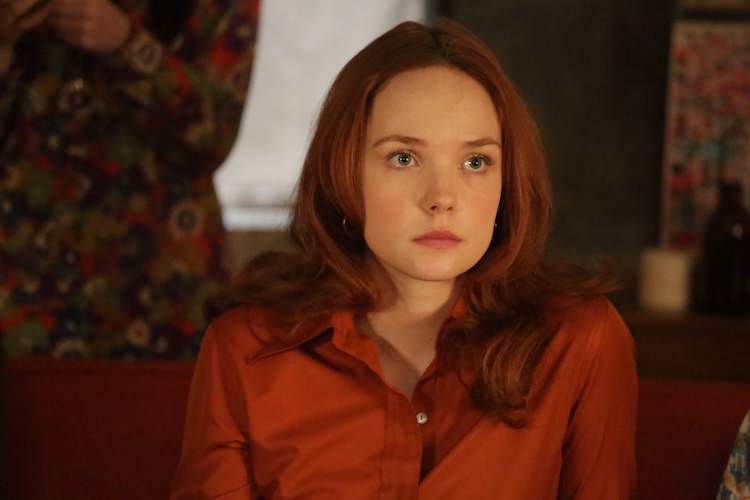
I'm curious about the interviewing process for this. Did you just pop out a recorder and say, "Tell me everything," or did you have specific questions you were asking or kind of guiding the narrative in any kind of way?
“There were a lot of questions, and they got into it. They weren't just telling me, but I really had asked them everything. “Describe what type of wardrobe it was. What did the place smell like? What did it look like? How did you feel?” I asked a lot about their own learning experiences and what upset them about it and what was great about it. There were thirty to forty questions, and they were pushing things into more detail as far as what their experiences were and other people and other characters that they were involved with. I got very involved with that and talking to them just about how they feel about it now.
“It was a very elaborate process. I purposely asked them the same questions. They were interviewed separately, but they had uncannily similar answers to what their experiences were. Some of them had remarkably different experiences. And that's what's interesting about the film is that it sort of became a journey and an unlikely sisterhood. It was just the beautiful friendships that formed and how they all faced adversity within the experiment itself, but also as individuals and what was going through their lives and how each other helped them out. It really just was what made the film so much more real and more interesting because of that experience and the interviews.”
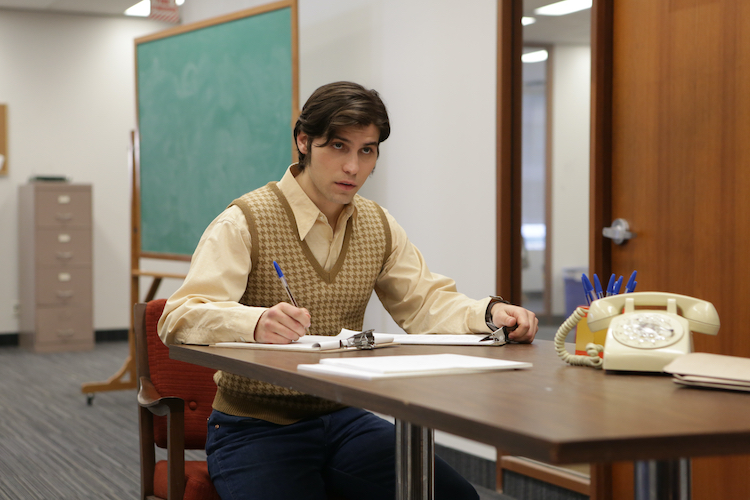
When you have all those interviews, how do you kind of cull it all down, and what informs your decisions on what you're going to use versus what you omit?
“I think that's where you get into the fact that it's a narrative structure because it's a feature film. It was really enjoyable and challenging. It was sort of like a kaleidoscope, and I had to take these characters and the backstory of what was going on and the experiment itself and the peripheral characters. I love some evolvement films where you have all these different people from different walks of life, and they all end up together and sharing a collective experience. I used that as the structure of it, which is exactly what happened, because they all had these different lives and issues and things going on. They all had different reasons to join.
“They didn't know each other when they first got there, so I sort of looked at them before setting up their characters. How they kind of weave together was really interesting, the journey they did as a team and how it ended up for each of them. I followed five young women, but there were also several supports who were quite key to their lives and to the experiment. It wasn't one of those rom-coms with two people; it was very sophisticated taking each character and giving them enough screen time so that you really understood them. It was really a great journey.”
![[L-R] Brittany Bristow as Jane, Julia Sarah Stone as Mary and Tymika Tafari as Mourinda in the drama, THE MARIJUANA CONSPIRACY, a Samuel Goldwyn Films release. Photo courtesy of Samuel Goldwyn Films. [L-R] Brittany Bristow as Jane, Julia Sarah Stone as Mary and Tymika Tafari as Mourinda in the drama, THE MARIJUANA CONSPIRACY, a Samuel Goldwyn Films release. Photo courtesy of Samuel Goldwyn Films.](https://media.aintitcool.com/media/uploads/article_images_2021/barbarella/themarijuanaconspiracy_still1.jpg)
If you had the option to be an observer in the room or somebody undergoing a weed experiment, which would you rather be and why?
“(Laughs) That's a great question. Well, I probably want to be in the experiment because I'm a fairly outgoing person, and I also don't think I could be an observer because I don't think I could sit there and watch what they went through and not say anything. I'm a very social person, too. So just in my personality, I wouldn't be able to sit there and not say a word and watch these people and not help them or talk to them or do anything. Whereas, if I was a participant, I would have had that collective experience with the other girls or guys, if that was the case, but just being able to help and communicate. And I think that's just more my character.”
What are your thoughts on marijuana?
I have no problems with it. I think it has recreational and medical benefits. It's something that the experiment fairly says that it's not anti-pot or pro-pot. Today, it is legal in Canada and hopefully going to happen in the States because there's still people in certain states in jail for marijuana. I think that's ridiculous. Whether it helps you medically or it's just something to relax, like people having a drink, I think it's really beneficial if it becomes legalized there. And hopefully, as in Canada, the regulations will start to back off a little about it.”
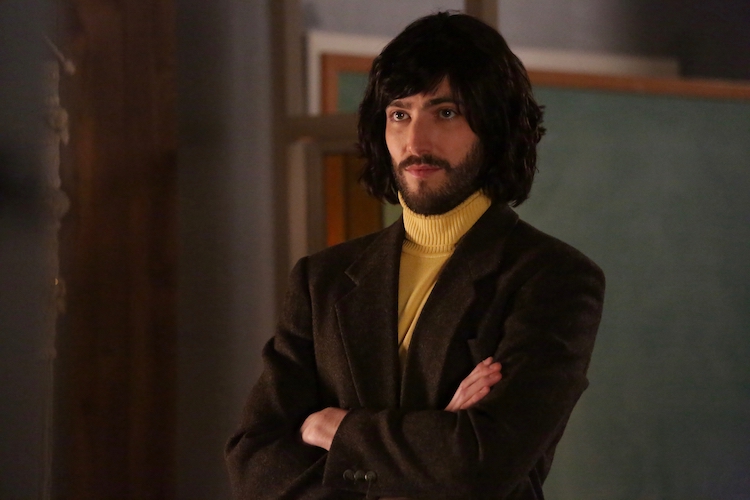
Was there anything that happened or that you heard about in the interviews that you wanted to include, but for some reason you couldn't include in the film, like it just didn't work timing-wise or something?
“Yeah. That's a good point. I did meet some of the girls that were in the non-smoking group, and because of the length of the movie, it would get too complicated to look at the non-smoking control group. A lot of their experiences, other than the weed, were similar. They were weaving the belts; they were looking at their productivity and how much they could earn. They were isolated – just the ten of them together – and they had to deal with that, which was very hard. Interesting enough for all of us now when you think about being in isolation – that was psychologically the hardest thing for both groups. It allowed me to bring elements of the non-smoking women that I met and bring some of their story into it as well in the composite way, so they were still serviced, but I didn't really want to bounce back and forth because it was too many people to serve in too much story within a two-hour window.”
Is filmmaking an all-consuming endeavor for you or do you find time to do other things?
“Well, when I'm in it, I'm all in, which is tough, sometimes, for the family and things. The nice thing is that when I'm not there, I'm 100% with everything else. and there are periods in the cycle. When you're shooting, you're not available at all. I'm super committed to every project, whether it be TV or film. I'm compartmentalizing better. When you start to shoot, it's the most intense time. And Denise and everyone knows that this is a time where I'm not available eighteen hours a day and trying to sleep the rest. But you do get those windows and breaks where you can really make up time with your family and friends. That is important because it's really hard to get a work balance in the film and TV business. And I try harder and harder to reach it.”
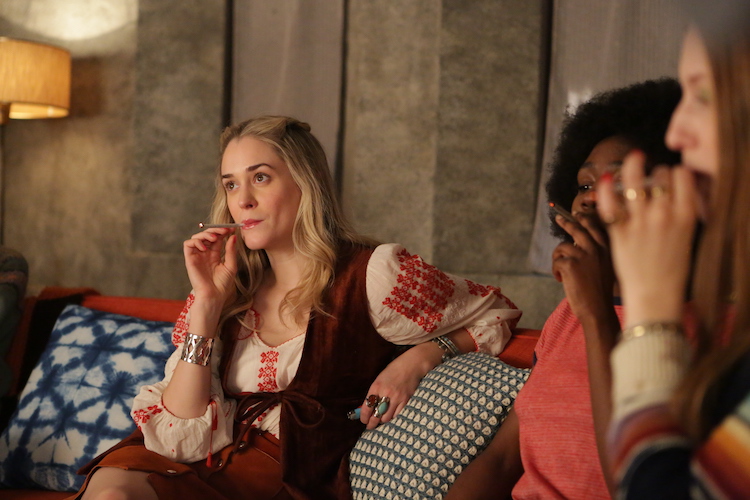
Right. What do you like to do when you're not working?
“Well, going up north and fishing with Denise and playing squash and running and socializing. Love to see friends and family and just spending time with the kids whenever they're around. So splitting time between family, friends and hobbies is what I do.”
What song sums you up the best?
“Song? Oh boy, that's a tough one. “Take It Easy” by the Eagles.”
Who’s had the biggest impact on you in your career and what did they say or do that proved so impactful?
“Well, when I did my first film, Andre Bigio helped me get it financed because he believed in me, and he really showed me what mattered and what didn't, how to deal with people, and things like that. He was like a mentor to me, but he also gave me a lot of creative freedom to make my first film, and he believed in the film and believed in me. That was sort of what got me started, and I'm forever grateful for that.”
Are you passing on the mentorship torch? Are you mentoring anybody?
“In many ways, yeah. There’s a lot of people that reach out, and I always help them any way I can. And sometimes you can't, and I'm honest with people and say, “I can't help you on this. However, I know someone who can.” I'm a big believer in that.”
Samuel Goldwyn Films released THE MARIJUANA CONSPIRACY On Demand and Digital on April 20, 2021.
